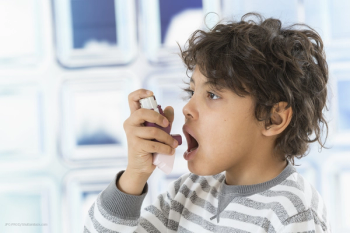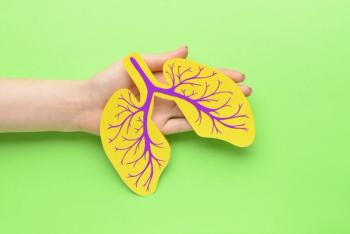
Chances of Asthma Symptoms Getting Worse When Treated with Psoriasis Medicine is Likely
Psoriasis medicine containing risankizumab, worsened symptoms in patients with severe asthma.
Psoriasis medicine licensed to treat the skin condition worsened symptoms in patients with severe asthma, according to trial results recently published in the New England Journal of Medicine.
Information found in a University Hospitals of Leicester press release shared the Journal’s data which presented that the study investigated whether risankizumab could potentially improve the symptoms and reduce attacks in people with severe asthma.
Led by researchers at the National Institute for Health Research (NIHR) Leicester Biomedical Research Centre, the study enrolled 214 patients, with 105 randomized to a risankizumab injection every 4 weeks over a 24-week period, while 109 patients received a placebo.
Researchers measured the “time-to-first” worsening determined by increasing symptoms, deterioration in breathing tests, increased use of inhalers and need for steroid tablets. Patients treated with risankizumab had an average time-to-first-worsening of 40 days, compared to 86 days for the patients given a placebo.
Risankizumab was shown to decrease molecules known to be important in protection against infection, when studying gene signatures from immune cells in airway samples. This act could explain the observed poorer asthma control, according to the release.
Professor Chris Brightling, NIHR senior investigator at the NIHR Leicester Biomedical Research Centre said in the release that it’s always disappointing when a potential treatment can turn out to be ineffective at treating a disease or make symptoms worse.
“We think risankizumab reduces the presence of substances in the airways that are important factors in preventing infections, which probably makes the patients’ symptoms worse,” Brightling said. “This theory is backed by molecular profiling, which shows reduced levels of these substances in samples taken from patients on the trial.”
Newsletter
Get the latest industry news, event updates, and more from Managed healthcare Executive.

























